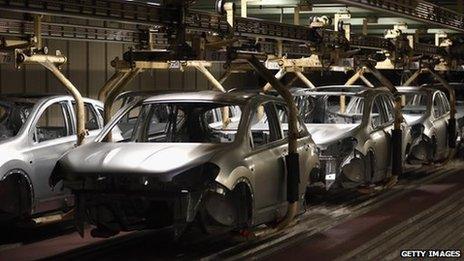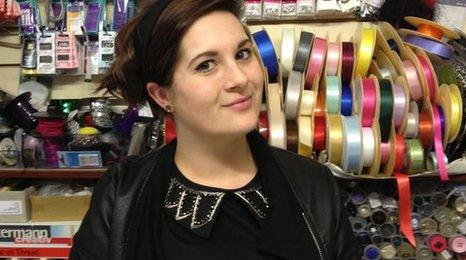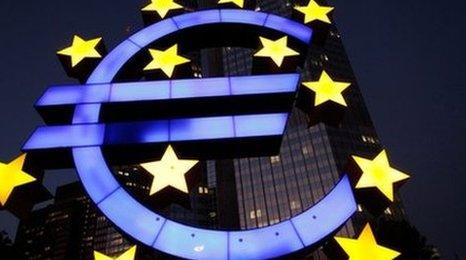Newsbeat's guide to... the economy
- Published

The British economy grew by 0.3% in the first three months of the year, new figures show.
It means the UK is no longer officially in recession but the economy is still fragile so job growth is likely to be slow and wage rises hard to come by.
What is GDP?
Add up the total amount of goods and services that we make and sell in the entire country and we get a figure for GDP or gross domestic product.
When that number is compared to older, historical GDP figures it can tell us if the whole economy is growing or shrinking.
We can also compare the British GDP figure with other countries to see if our economy is growing faster or slower than our nearest competitors.
Sounds like a maths lesson. Why should I care?
If the economy is growing strongly it probably means companies are creating jobs and wages are likely to rise.
If the economy is shrinking it probably means the opposite: jobs are hard to come by, more people are being let go and decent wage rises are harder to get.
What's happening at the moment?
Since the financial crisis of 2008 the economy has been spluttering along.
GDP figures are released every three months, or quarter of the year.
The most recent show the economy grew by 0.3% in the first three months of 2013, faster than many people were expecting.
But it follows a period last year when the economy shrank or became smaller. When that happens for six months in a row it means we are in a recession.
So what's going on?
Areas of the economy doing better at the moment include service businesses like hotels and restaurants which saw strong growth in the first part of the year.
Heavy industry is also doing well thanks to an increase in the amount of oil and gas produced by rigs in the North Sea.
But there are also parts of the economy that are still fragile.
The building and construction sector is continuing to shrink, which is bad news for people working in jobs from bricklaying to architecture.
The cold and wet weather at the start of the year and worries about jobs and the economy also mean we are spending less in high street shops.
And politicians get very hung up on this?
Political parties often take the credit when the economy is growing strongly and the blame when it shrinks or grows very slowly.
It's true that the policies the government puts in place can change the rate at which the economy grows.
But there are many other factors to worry about as well such as the state of the global economy outside the UK, the amount banks are lending and the price of natural resources like oil and gas.
Follow @BBCNewsbeat , externalon Twitter
- Published20 March 2013

- Published6 June 2012
